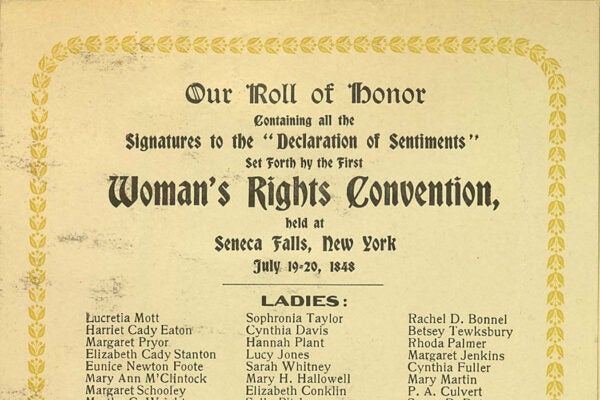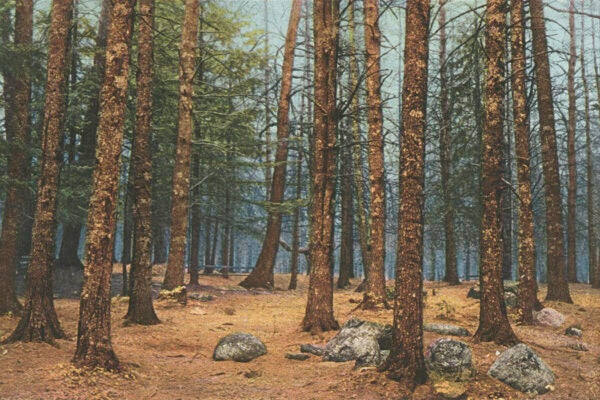“Declaration of Sentiments”: Annotated
The document that came out of the 1848 Seneca Falls Convention extended the long-lived and hard-fought movement for women’s rights in the United States.
10 Contemporary Pastoral Poems
Poems that reflect and reinterpret the pastoral tradition, by Louise Glück, Alex Dimitrov, Rebecca Lehmann, Sam Sax, Natasha Trethewey, and more.
Introduction to Jewish Studies: A Reading List
The broad, ever-expanding field of Jewish Studies is united by texts, events, and figures that engage an established canon of ideas across disciplines.
What the Trees Are Telling Us
Markers of both environmental change and periods of stability, trees have a lot to tell us about nature—but also about humanity.
Speculative Fiction: A Reading List
Speculative fiction, from Afrofuturism to Star Wars, offers students tools and methods for analyzing social movements, power structures, and utopian thinking.
Labor Day: A Celebration of Working in America
Our best stories about workers' rights, labor unions, and international movements to improve working conditions, from the factory to the farm.
The Bill of Rights: Annotated
Proposed as a compromise to ensure the ratification of the new US Constitution, the Bill of Rights has become a critical protector of civil liberties.
10 Villanelles by Modern and Contemporary Poets
Read these recursive, nineteen-line poems by Elizabeth Bishop, Paisley Rekdal, William Logan, Agha Shahid Ali, and more.
We Love Libraries
Honoring the libraries and librarians that have shaped the way we live, learn, and fight.
Marbury v. Madison: Annotated
Justice John Marshall’s ruling on Marbury v. Madison gave the courts the right to declare acts and laws of the legislative and executive branches unconstitutional.









